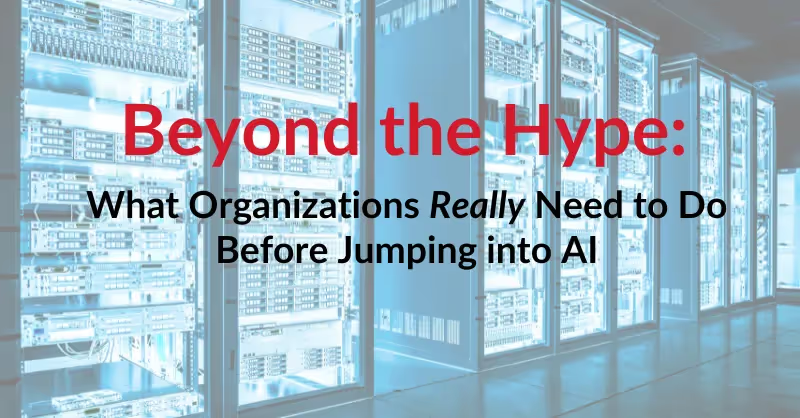Beyond the Hype: What Organizations Really Need to Do Before Jumping into AI

While the tech world was busy speculating over Elon Musk selling X to his own AI company xAI — raising fresh questions about transparency and strategic intent — most organizations face a very different AI reality.
They’re not debating billion-dollar moves. They’re trying to figure out:
- Is our data even ready?
- What problems are worth solving with AI?
- How do we avoid building black-box tools our teams won’t trust?
- And where do we even begin?
At Northeastern’s Institute for Experiential AI, we see these questions come up again and again in our collaborations with companies across sectors. Whether it’s infrastructure, healthcare, finance, or logistics, we’ve found there are four foundational areas organizations should focus on before or as they adopt AI.
1. Data Readiness Is Not a Checkbox — It's a Roadmap
Too many organizations leap toward AI without understanding the state of their data. We recommend a clear-eyed assessment:
- What systems do you have?
- Where is your data inconsistent or incomplete?
- Can your teams access what they need securely?
Treat this like building a runway before you try to launch.
2. Think Use Case, Not Use Hype
Instead of chasing buzzwords, focus on specific operational pain points:
- Are project managers drowning in status reports?
- Is it taking too long to analyze bids or forecast outcomes?
- Do employees lack confidence in the decisions AI tools make?
A well-scoped, human-centered problem leads to a far more valuable solution — whether that’s a digital co-pilot, a risk early-warning system, or an intelligent dashboard.
3. Competitive Intelligence Doesn’t Mean Guesswork
AI can do more than summarize data — it can help organizations make smarter moves. By analyzing historical bid data or market patterns, AI can help teams focus their efforts where they’re most likely to win. But this only works if your internal and public data is properly prepared and ethically modeled.
4. AI Talent and Trust Go Hand in Hand
Upskilling your workforce isn’t optional. Whether it’s technical training for model builders or practical GenAI use for project teams, investing in internal capability makes your AI initiatives more sustainable — and more trusted.
We often co-design education programs tailored to where a company actually is in their journey — not where the headlines say they should be.
Final Thought
AI doesn’t have to be a moonshot. But it does need to be intentional.
While tech giants experiment with provocative strategies, most organizations benefit more from slow, strategic wins: improving data hygiene, clarifying priorities, piloting solutions with real users, and building internal confidence in AI tools.
If you're thinking about your organization's AI journey, focus less on what’s trending — and more on what’s possible, practical, and responsible.



.avif)

